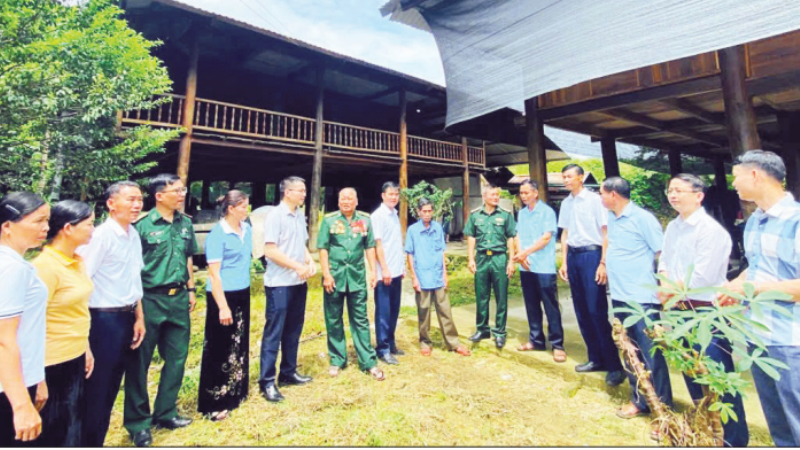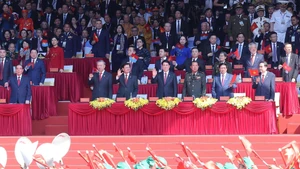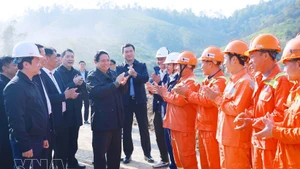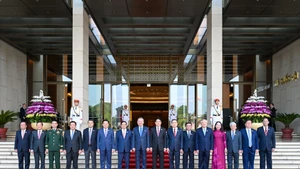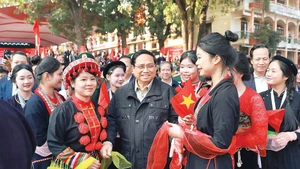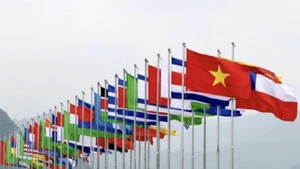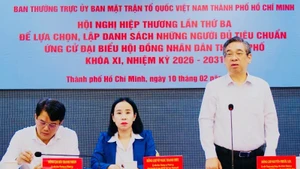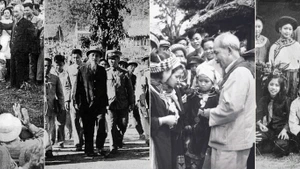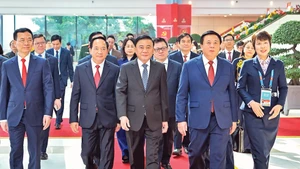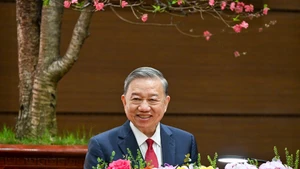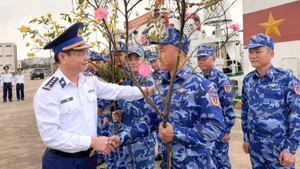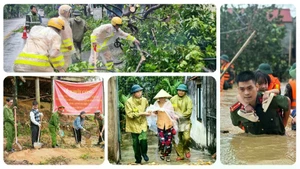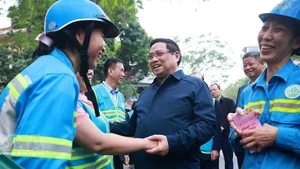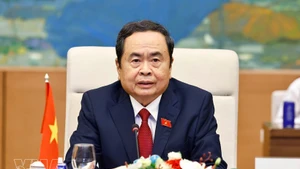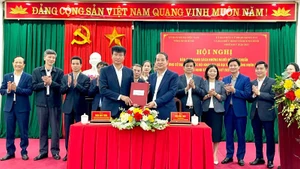Aiming to better serve people
At the Public Administrative Service Centre of Pa U Commune, Lai Chau Province, around 10 a.m., many residents came to carry out administrative procedures. Despite being located in a remote area, the Centre’s facilities are well equipped, and the civil servants’ manner of serving the people is enthusiastic and friendly.
Having just completed the required transactions, Po Lo Hu, a resident of Pha Bu hamlet, said: “At first, I thought that after the administrative boundary merger, procedures would take longer due to the increase in population and the new apparatus not yet operating smoothly. But when I came here, I was quite surprised that the procedures were settled promptly, and officials provided careful, thoughtful guidance.”
Pa U Commune was merged from the former Ta Ba and Pa U Communes and now has more than 5,840 people, including the La Hu, Thai, and Ha Nhi ethnic groups, with a still-high poverty rate. The Commune Party Committee has nearly 400 members, operating in 26 cells. According to Deputy Secretary of the Commune Party Committee Tran Viet Anh, since July 1, Pa U has become a large commune with a much greater workload and a vast area, requiring the cadre force to fully recognise their responsibility and make greater efforts to meet task requirements. Based on the expertise and strengths of each individual, the Party Committee has assigned cadres appropriately, including those who previously worked at district level, together with local officials, ensuring the fulfilment of common tasks. Officials and civil servants are deployed according to their capacities, matching people to the right jobs.
Along with promoting administrative reform and applying information technology in handling administrative procedures, the commune focuses on improving professional ethics, implementing the motto “people know, people discuss, people do, people inspect, people supervise, people benefit.” Thanks to this, after two months operating under the new model, most matters relating to the legitimate rights and interests of the people have been handled swiftly, transparently, and publicly, helping officials reduce pressure and concentrate on enhancing work quality.
Operating local government under the new model is a major turning point, expanding development space, but it also poses many difficulties for Hua Bum Commune. After the merger, the number of Party cells and members increased, and the area became larger. To ensure smooth, uninterrupted operations, the commune has adopted the policy of assigning officials according to their expertise and strengths when working in the former district or communes, while encouraging cadres and Party members to overcome difficulties when working far from home; actively coordinating with provincial agencies and units to organise short-term training in skills and expertise to help existing local cadres quickly adapt to their new tasks.
Secretary of Hua Bum Commune Party Committee Phan Van Coc shared that, to ensure the best leadership role and overall orientation for the commune’s operations, right after the new commune began operating, the Party Committee issued working regulations, assigned specific responsibilities, and assessed the effectiveness of each Party Committee member in supervising units and addressing issues in people’s lives. Together with strengthening direct dialogue activities between the head of the Party Committee, authorities, and the people, the Party Committee focuses on consolidating and improving the quality of grassroots Party cells’ activities by concentrating on pressing issues in people’s lives. Each Party member must truly be a shining example in labour production, building new-style rural areas, and maintaining security and order.
Caring for and supporting commune-level officials
Lai Chau Province now has 38 commune- and ward-level administrative units, a reduction of 68 units compared with before July 1, 2025. Managing a larger area with a bigger population and many different customs and practices requires flexible and scientific leadership and management methods.
The reality of operating under the new model in many post-merger communes in Lai Chau Province also shows many difficulties and obstacles, such as lack of infrastructure, cramped working offices in many communes, cadres having to work far from home and stay overnight in cramped places, and many having to work overtime due to the heavy workload.
Deputy Standing Head of the Provincial Party Committee’s Organisation Commission Sung A Nu shared that, in the immediate future, the province has instructed localities to review all old offices of the merged communes to optimise use; renovate, upgrade and expand them to ensure that offices have sufficient working space for officials and civil servants, and spacious, convenient areas for people to conduct transactions.
Formed after the merger of Muong Te Township, Bum To Commune, and Can Ho Commune, the new Bum To Commune now has 11,700 people in 21 hamlets, mostly from ethnic minorities. For the 2025–2030 tenure, the Commune Party Committee strives for by 2030 average income will reach more than 50 million VND per person per year, 90% of grassroots Party organisations and Party members will complete their tasks well or better; the poverty rate will decrease by more than 5%; and the commune will meet 14 out of 19 new-style rural criteria.
Secretary of the Commune Party Committee Ly Cong Hau said that the commune’s advantage is being allocated the former Muong Te District Office as its workplace. Building on positive results from the 2020–2025 period, during which average income reached 35 million VND per person per year, industries, services, and commerce continued to develop, and nearly 100 enterprises were operating, contributing to stable jobs and incomes for many households. However, the commune is also facing difficulties, such as slow economic restructuring, limited application of science and technology in production, incomplete information technology infrastructure in some highland hamlets, and certain outdated customs not yet eliminated.
To achieve the targets set out in the Commune Party Congress Resolution, Head of the Party Building Committee of the Commune Party Committee Pham Hong Binh said that improving the quality of grassroots cadres remains a key factor. Along with training and fostering expertise and professional skills for the cadre force, the Commune Party Committee values innovation in leadership methods, emphasising the responsibility of leaders in directing, organising, implementing, and supervising based on clearly assigned duties; strengthening grassroots engagement, and promptly resolving difficulties and problems for people and businesses.
